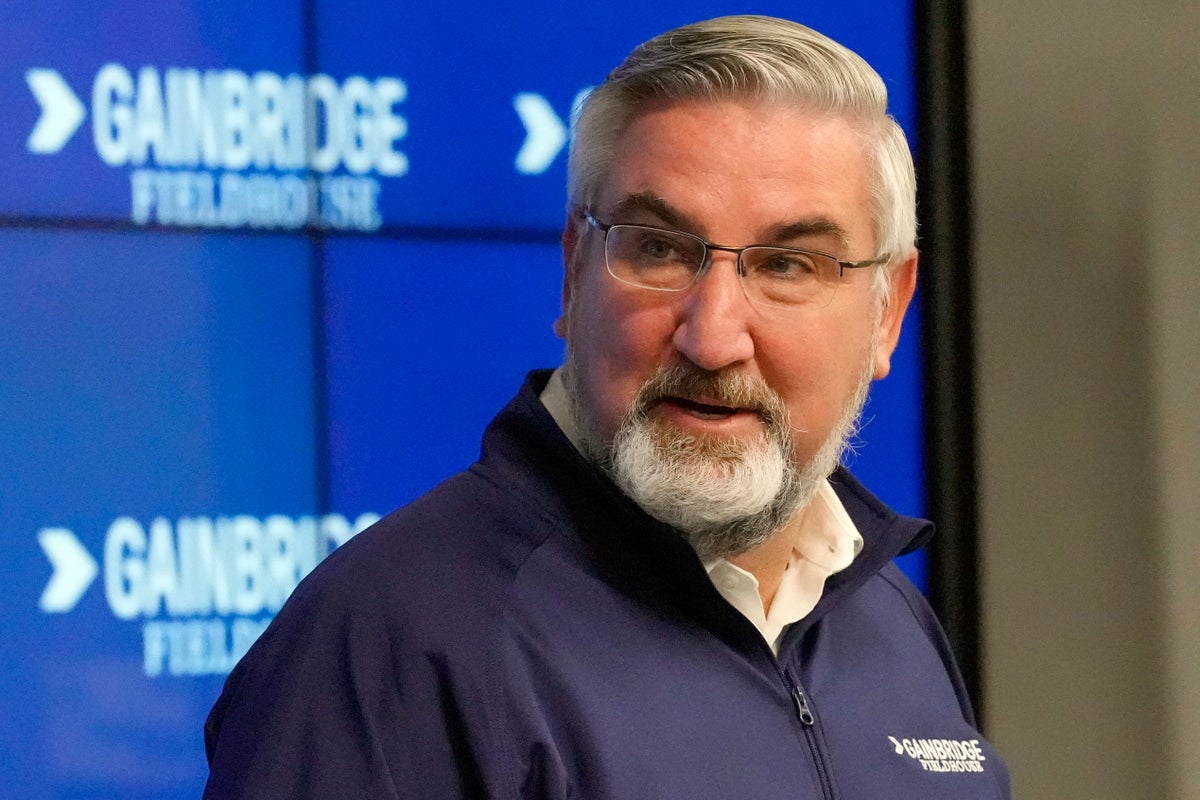
The Indiana Supreme Court on Friday threw out a law that gave state legislators increased power to intervene during public health emergencies, agreeing with arguments from Republican Gov. Eric Holcomb that the move violated the state constitution.
The court’s unanimous decision settles a legal fight that began more than a year ago when Holcomb sued over a law that was a response to his efforts to deal with the COVID-19 pandemic.
The new law gave legislative leaders authority to call the General Assembly into an “emergency session” if the governor declares a statewide emergency. The GOP-dominated Legislature approved it over Holcomb's veto.
Holcomb’s lawyers contended that the state constitution allows only the governor to call the Legislature into meetings for consideration of new laws outside of its annual sessions that begin in early January and adjourn by the end of April.
Chief Justice Loretta Rush agreed, writing for the five-justice court that Holcomb's attorneys had “satisfied the high burden required to establish that the law is unconstitutional."
“Under our Constitution, the General Assembly simply cannot do what the challenged law permits absent a constitutional amendment," Rush added.
Holcomb said in a statement that the battle over the law had raised “important procedural, statutory and Constitutional questions that only the courts could answer."
“Today, the Indiana Supreme Court has provided clarity and finality on these important issues," he said.
The high court’s ruling came after a Marion County judge sided with the Legislature in October.
Legislative leaders never tried to convene an emergency session under the law. Holcomb first issued a public health emergency in response to the pandemic on March 6, 2020, and terminated it this March. He had issued 23 monthly extensions, drawing the ire of many conservatives even though any mask mandates or business restrictions ended in spring 2021.
Under the law, it would be up to the Legislative Council — made up of eight senators and eight House members — to call an “emergency session” if it determined that the governor had declared a state of emergency with “statewide impact” and that “it is necessary for the General Assembly to address the state of emergency with legislative action.”
GOP legislative leaders have maintained that the measure wasn’t “anti-governor” and praised Holcomb’s handling of the coronavirus pandemic, which health officials say has killed more than 23,000 people in the state.
Republican House Speaker Todd Huston said in a statement that he respected the court's ruling. “We’ll consider all options moving forward," he said.
Republican Senate President Pro Tem Rodric Bray echoed that, saying in a statement: “We will work collaboratively to find a way forward that serves the best interests of the State of Indiana."
Although Friday's ruling found the “emergency session" law to be unconstitutional, Rush wrote that the General Assembly does have “the constitutional authority to set additional sessions.”
“While our Constitution authorizes only the Governor to call a special session, the General Assembly can set additional sessions -- but only by fixing their length and frequency in a law passed during a legislative session and presented to the Governor,” she wrote.
All of the court's justices were appointed by Republican governors. Only Justice Christopher Goff was appointed by Holcomb, in 2017.
Holcomb’s lawsuit divided Indiana’s Republican hierarchy, with Attorney General Todd Rokita siding with legislators. Rokita’s office unsuccessfully argued that the attorney general alone had the legal authority to represent the state in court.
Rokita said in a statement that the court's ruling had overridden “the intent of those who are directly elected by the people."
But the Indiana Democratic Party called the ruling a repudiation of Republican lawmakers, saying that their “extremism and unnecessary purity tests” have wasted Indiana residents’ tax dollars.







